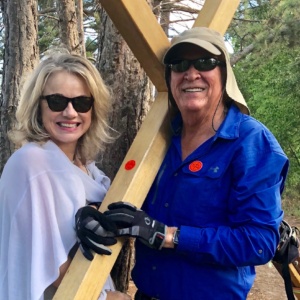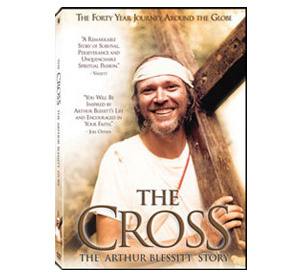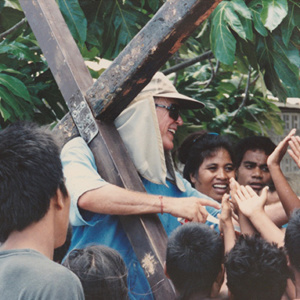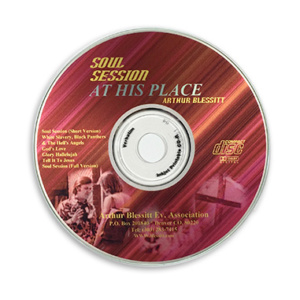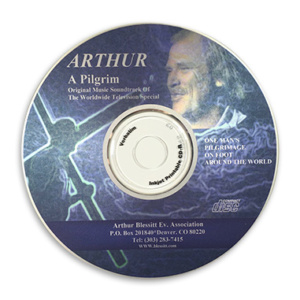TWO ANGRY DISCIPLES
In this corner at 140 pounds and five feet seven inches, filled with hatred for the world and everything in it, particularly white men, was Jesse Wise, a nineteen-year-old hot-tempered African American, suspicious of kindness, cynical, defiant, his heritage chockablock with liquor and violence.
His 195-pound, six-foot-seven opponent was a African American-hating soldier in the Chicago wing of the Cosa Nostra who at twenty-five, had already killed seven people. His name isn’t really Dominick Rizzo, but when a man says he’s honored seven contracts for murder, and you believe him, it would be violating a trust to reveal his true identity.
The battleground for Jesse and Dominick was the House of Disciples, the Halfway House I had founded as a companion facility to His Place. The Halfway House on South Oxford is about nine miles from the Boulevard, far enough removed in geography and atmosphere to afford an isolated Christian environment for new converts still struggling to remake their lives.
The facility was organized for saved dopers and emotionally scarred dropouts from straight society who needed critical follow-up work. More than five hundred converts have passed through the reorientation program at the House. They are free of drugs, no longer uptight or hung up in any major way. Now they are scattered to the four corners of America, integrated as useful members of their communities, God-loving citizens who once were disowned by every segment of the Establishment organized religion, the schools, their parents, relatives, friends, and employers.
The work accomplished at the Halfway House has been and continues to be one of the most satisfying aspects of my ministry.
The rules are strict and enforced with a loving but firm hand. The operative word is discipline. Discipline for chaotic individualists who must be taught a sense of orderliness and appreciation of routine. Forbidden are drinking, cigarette smoking except in the backyard, dope, and dating girls during the required month of quarantine. In some hard-core cases the new disciples of Christ are allowed to stay on longer, until their problems can be more effectively treated.
The freshly minted Christians pass through the House in groups of twenty. Wake-up time is 7 a.m.; lights out at eleven. Each is assigned a task: cooking, scrubbing floors, cleaning rooms, making beds, landscaping. While we try to find jobs for these in-transition Christians or strengthen them to return to high school, college, or their hometowns without fear, there are daily Bible studies, prayer meetings, fellowship, and Christian centered group therapy sessions where Scripture may be challenged and where everyone is permitted to criticize, rip apart, and tear into anyone else.
After the first two weeks of isolation, each disciple has two nights off. One evening he goes out by himself as a test, the other is spent in street-witnessing on the Boulevard or working at His Place.
Jesse Wise came to the House through the aid of two of my friends, a tall, handsome young African American known all over the Boulevard as “Solo,” a nickname he had taken as a symbol of the loneliness he felt in his soul before finding the companionship of God, and O. J., who doubles indispensably as a soul-winner and one of our His Place musicians.
Solo and O. J., on their way back to Los Angeles from a witnessing mission in Indianapolis, met Jesse at a Denver crash pad housing a large number of kids. They held a preaching service, and Jesse at first ignored the word of God. But when he started to listen to Solo and 0.J. with his heart, he began to realize he needed Christ and that Jesus was the answer to his life. So Jesse came forward and committed himself. Solo and 0. J. then told Jesse about the Halfway House, and Jesse hitchhiked to Los Angeles to go through our training program.
A child in Christ when I first met him, Jesse had a keen, intelligent mind. He’d spent one semester studying psychology at the University of Colorado before dropping out. He wasn’t a head or an alcoholic. His hang-up was his volcanic wrath against whites, he felt his people had been persecuted and given the short end of the American dream-for four hundred years.
At the House Jesse dug through the pages of the Bible. He was entranced with the Scriptures, reading, digesting, accumulating the backbone of Christianity.
As he poured through the Book, Jesse caught fire, and he learned compassion and forgiveness and developed a devout love for the Lord. So passionate was his conviction and progress that I made him director of the House.
Jesse had finally lost his hatred and mistrust of whites until Dominick arrived.
Dominick was a human spike; there was nothing on his long frame but bone and muscle.
I spotted him at His Place after be became a regular. Night after night he came in, but he said nothing, did nothing, just kept measuring the scene through clever brown eyes. When we closed, he would leave with the last stragglers and crash, as I learned subsequently, in a deserted motel or house, a culvert or on a side street.
I tried to witness to Dominick, but he would have no part of it. He’d barely acknowledge my presence, much less speak to me.
No one could figure Dominick’s bag — he had no apparent vices. He wasn’t a doper or a boozer. He didn’t even date, and he had no friends.
Since I surrendered to preach, I have never gone to bed without leading at least one lost soul to Christ. After two weeks of indifference from Dominick, I set my cap for him. I sensed he needed Christ, was ready to be led to the Savior.
He was sitting quietly at one of our tables when I approached.
“Dominick, wouldn’t you like to get saved?”
I was astonished when he said simply, “Yes!”
“Do you mean it?”
“If you think I’m worth saving, I’m for it.”
From my New Testament I read several passages from the Book of John. Then I said, “Dominick, I’d like you to read a few verses aloud. I want to hear Scripture from your lips.”
“No!”
“I thought you wanted to be saved. You have to know His words if you want to become a new man.”
Dominick hung his head in shame like a scolded child.
“Man, what is it?”
“I can’t . . . I can’t read. I just never learned,” he said in a whisper.
“No problem, man. I’ll teach you. Right now let’s go up to the prayer room.”
Dominick kneeled beside me and I said a prayer, a supplication to the Lord to accept yet another sinner.
When the prayer was over Dominick was smiling, the first time I had ever seen him smile.
“Would you like to give your testimony to the crowd in here tonight?”
“All right.”
Dominick went center-stage and he told the kids, “I’ve just been saved. I don’t understand much about what’s happening to me. But I feel good. I’m going to try to behave myself a little bit. At least I’m going to do the best I can.”
It wasn’t much of a testimony. Christ deserved a more fervent commitment than Dominick had volunteered.
Dominick stayed until closing time and as I started to lock up I happened to mention to him that His Place had been burglarized the night before. A tape recorder and a few other items we used to do the Lord’s work had been stolen.
“I’ll take care of it,” he said.
“What do you mean?”
“Just leave me here overnight. Lock me in. The guy might come back.”
“What if he does?”
“I’ll kill him, man, I’ll kill him! Nobody’s going to steal any more of your stuff.”
“Dominick, are you saved? What about Jesus?”
“And nobody’s going to steal any of His stuff, either!”
He was dead serious, and it took me a long while to convince him that the last thing I wanted at His Place was a murder.
“I’ve killed before, seven times,” Dominick said matter-of-factly.
I froze in disbelief.
Dominick proceeded to tell me the bone-chilling, despairing sequence of events that had brought him to His Place and Christ. If he had given his real testimony to the crowd, no one would have come within a mile of him.
Dominick’s father had been a bitter man who traveled throughout the Midwest earning a precarious living drilling water wells for farmers, sometimes tucking his equipment as deep as three hundred feet into the earth before hitting a strike. Often there were long and agonizing weeks when his father bored sixteen hours a day and his search for water ended in failure. On such occasions, he was paid nothing.
Dominick helped his father, and the nomadic life kept him out of the classroom. His father became a defeated, self-pitying man, drowning himself in drink and malice. In his frustration, he frequently used a gun butt and a whip to beat Dominick. So was the angry twig bent.
When Dominick was seventeen, a train ran into his father’s car. He pulled his father’s unrecognizable remains from the wreckage.
Broke, unschooled (he could neither read nor write), he went to his only relative, an uncle high in the ranks of the Cosa Nostra. Dominick became a soldier in the Chicago Family, a strong- arm man and killer. Seven contracts for murder were given to him. Seven times he killed as ordered.
The eighth contract changed his life. He was supposed to hit a man whose business had been taken over by the Cosa Nostra. But the man now was ready to testify in court. If he did, some famous, notorious heads would roll.
On the day of the hit Dominick was secreted in a tall building overlooking the hotel where Chicago police were holding their star witness. With Dominick was another Cosa Nostra soldier and a young girl who was more vicious and lethal than most men.
When the witness arrived at the hotel and stepped out of the police car, he stood on the sidewalk talking to his bodyguards. Dominick had a clear shot at him.
The high-powered lens on his rifle magnified the fleshy face of the man who would be dead in another second. Dominick had only to pull the trigger. But something stayed his hand. He couldn’t go through with it. “I just panicked,” he recalled. The other soldier grabbed the rifle and took aim. But Dominick didn’t want the man killed. He lurched at his confederate, knocking the gun to the floor. While they battled, the girl picked up the gun, went to the window, took aim and fired.
She missed.
The shot brought the police, drawn guns blazing. Dominick and the girl managed to escape. The other soldier was mowed down by police bullets.
Knowing his superiors brooked no failure, Dominick split for Los Angeles, though he realized there was no real point in running. He would be found.
Dominick’s knowledge of the inside workings of the Cosa Nostra was voluminous. He mentioned the names and crimes of the top bosses in the country and told me the names of the Los Angeles Cosa Nostra leaders who owned nightclubs on the Boulevard and controlled most of the Boulevard’s women of the night and dope traffic. His information squared with what I had learned from other sources about the Cosa Nostra’s infiltration of the Boulevard.
“I’m sure they’re looking for me,” Dominick concluded, “and I’m scared.”
I invited him to the Halfway House for temporary refuge.
Dominick accepted gratefully, but he was appalled when he saw that whites and African Americans mingled together freely in the House.
“I can’t stand African Americans,” he said. He flat-out hated them. When he learned that African American Jesse Wise was the director of the House, he was almost ready to walk out and take his chances with the Cosa Nostra. A clash between Jesse and Dominick was inevitable.
Jesse was saved and serving, but I knew if he was pushed by someone as prejudiced as Dominick, he might explode. It would not be enough to preach the Ten Commandments and the Sermon on the Mount to Jesse and Dominick.
The first few days they merely stalked each other. Except for a few random insults, there was an unspoken truce between them. But the truce could be broken at any time, so I determined to head off any possible clash by letting Jesse and Dominick go at one another in one of our group encounters.
There were ten in the group when we gathered together, but the other eight were only spear- carriers. Jesse and Dominick dominated the session.
“I’ve hated African Americans since my sister was raped by one of you,” Dominick said.
“I didn’t rape her. Man, we got brown brothers, tan brothers, yellow brothers, every shade of brother you can imagine. How do you think they got that way? Talk about rape! There’s white blood flowing inside most of my brothers, and that’s the blood that makes them hate. Man, if I had a sister, I wouldn’t trust you with her.”
Dominick popped from his seat like a jack-in-the-box. His hands were around Jesse’s throat when I pulled him off .
I told them, “We can fight and go on spouting hatred all night, but it won’t get us anywhere. Jesse, I want you to say something good about Dominick. Dominick, I want you to say something positive about Jesse.”
Sullen, stubborn silence.
Jesse finally volunteered, “If he’s saved, truly saved, then I suppose there’s some good in him.”
“There’s only one African American man I ever admired, Martin Luther King,” said Dominick. “He had guts. I could never figure out how he came so far without using muscle. I guess Jesse’s got the same kind of guts.”
The session went on for several hours. Jesse and Dominick would flare at one another, but the remarks grew less personal. The exchange became a discussion of the historical wrongs that whites had committed against African Americans since the days of slavery. Dominick conceded that Jesse was telling it like it was.
Afterward they didn’t volunteer to become roommates. But often a slow coming together is more binding than an instant, unexamined friendship. Jesse began helping me teach Dominick to read and write. Once Dominick mastered the alphabet, he could manage simple books and then Bible verses. Dominick, a whiz at electronics, fixed Jesse’s broken radio. They began spending hours together, candidly exchanging the stories of their lives.
They both grew as Christians and in Christian brotherhood. They came to the point where they not only liked each other, but were militantly protective of one another’s welfare.
I was out of town one night preaching a revival when Jesse went up to His Place to help the staff. Three Black Panthers came in and started hassling some of the kids. When Jesse asked them to cool it, the Panthers cursed him and called him an Uncle Tom.
Before he was saved, Jesse, who was so proud of his race, would have pulverized anyone who hurled that insult at him. Now he let it go by, but the trio of Panthers, doped- and boozed- up, continued hassling the kids and ragging Jesse. Jesse politely asked them to leave.
The Panthers tore into Jesse, belting his head and face with their fists and kicking him with their boots. Through it all, Jesse stood firm. He didn’t raise a finger to defend himself. He finally crumbled to the floor. One last kick in the groin, and the Panthers took off.
When Dominick heard about the beating, he was ready to hunt down the offending Panthers and kill them all. Only Jesse’s protestations that such revenge was not Christian restrained Dominick.
“Man, why do you think I took it? Because I’m saved!”
Dominick was wide-eyed with admiration for Jesse.
I learned about the fight and the interaction between Jesse and Dominick when I got back to town.
A few nights later Dominick called me aside and said without melodrama, “I’ve been visiting some guys I know on the Boulevard. There’s a contract out for me.” The Cosa Nostra had not forgotten.
“Let me talk to some people. Maybe they can help,” I said.
“I’ll work it out in my own way. You can’t find anybody bigger in the setup than my uncle. He’s the only one who can shake me loose.” Dominick called Chicago.
A meeting was arranged in an alley behind a Boulevard building. Three heavy hoods in a black car pulled up. One of them said to Dominick, “Well, you live, but you get a beating.”
Dominick didn’t choose to follow Jesse’s nonviolent example. He chose rather to defend himself. He could lick twice his weight in wildcats, and he proved it by slapping the tar out of the Cosa Nostra men.
He told Jesse and me about it when he got back to the House. The skin on his knuckles was raw, and there was a cut on his cheek. He was otherwise unharmed. And Dominick was smiling.
“That’s it,” he said with relief. “I’m out now — for good.”
“Won’t they be after you again for what you did to those three men?” Jesse asked.
“No, that’s considered a draw. A soldier has the right to protect himself when he’s being worked over. If you can handle it, there’s no hard feelings.”
It was Jesse’s turn to be wide-eyed with admiration for Dominick.
Jesse went on to Bible school, then became a member of my Team. He plans to become a minister.
Dominick met a girl at His Place, married her, and now is working on a farm in the Midwest.
Jesse Wise and Dominick Rizzo, the Lord’s two angry disciples, are angry no more.


